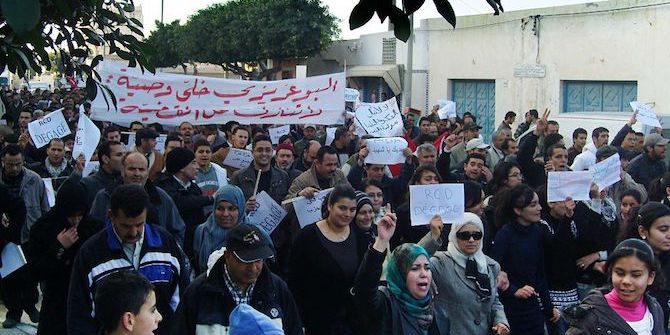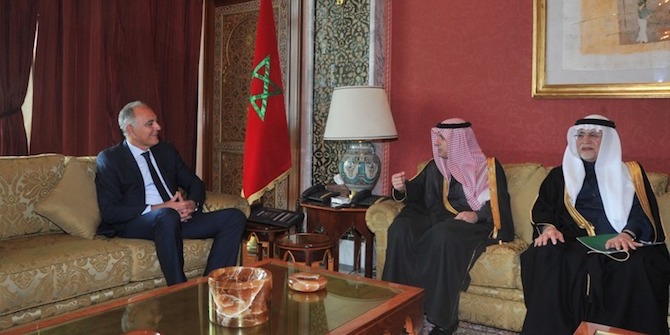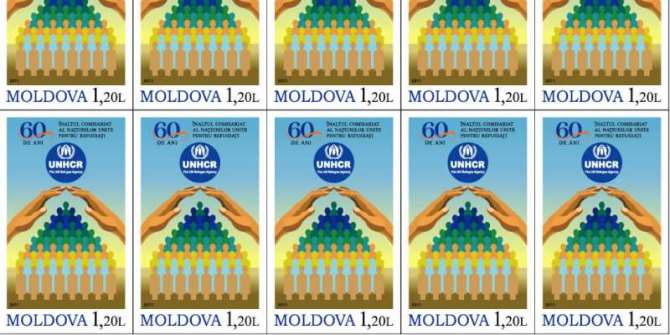by Jonathan Hill

I am delighted to introduce this series of posts for the Middle East Centre’s blog. Each paper summarises a different presentation delivered at ‘The Arab Spring and the Academy’ workshop held at the LSE in May 2017. The collective purpose of this series is to identify and analyse the effects of the Arab Spring on the study of North Africa. To ensure that they have the widest possible appeal and relevance, the contributors draw on a range of disciplinary approaches and each focus on a different country: Egypt, Libya, Tunisia, Algeria, Morocco and Mauritania. In so doing, they together provide an overview that is at once broad and specific, stark and subtle, and that casts new and important light on this under-explored legacy of the Arab Spring.
Writing about Egypt, Florian Kohstall shows how the unrest led to the emergence of new protest actors and had an unsettling effect on Egyptian social sciences. On Libya, Anna Baldinetti argues the importance of history to understanding the present before sketching the difficulties facing those seeking to conduct in-country research. As to Tunisia, Francesco Milan focuses on security sector reform, an issue that has assumed unprecedented importance since the demise of Ben Ali. Turning to Algeria, Rasmus Alenius Boserup notes how the endurance of the Bouteflika regime is leading scholars to look again at the apparent stability of the country’s ruling order. Writing mainly about Morocco but also Tunisia, Cristina Moreno Almeida examines some of the cultural consequences of the protests and how the unrest affected artists’ attitudes towards and relations with the government. In the closing piece about Mauritania, Olga Martín González highlights the limits of the Arab Spring, and the extent to which the protests had little effect on the day-to-day lives of some of the region’s must vulnerable inhabitants and communities.
Drawing together the thoughts and analysis of six leading experts on North Africa, these posts offer important and fascinating insights into the impact of the Arab Spring on the subjects and methods of their study. I hope you enjoy reading them.
 Jonathan Hill is Reader in Postcolonialism and the Maghreb in the Defence Studies Department, King’s College London. He has provided expert opinion on North Africa to a range of public and private organisations including the UK’s Foreign and Commonwealth Office, Ministry of Defence and Department for International Development, Sweden’s Ministry of Foreign Affairs and the World Energy Council. His most recent book, Democratisation in the Maghreb, draws on Steven Levitsky and Lucan Way’s democratisation model to chart and compare the political development of Morocco, Algeria, Tunisia and Mauritania over the past 10 years.
Jonathan Hill is Reader in Postcolonialism and the Maghreb in the Defence Studies Department, King’s College London. He has provided expert opinion on North Africa to a range of public and private organisations including the UK’s Foreign and Commonwealth Office, Ministry of Defence and Department for International Development, Sweden’s Ministry of Foreign Affairs and the World Energy Council. His most recent book, Democratisation in the Maghreb, draws on Steven Levitsky and Lucan Way’s democratisation model to chart and compare the political development of Morocco, Algeria, Tunisia and Mauritania over the past 10 years.
In this series:
- An Uprising in the Social Sciences? The Study of Middle East Politics in Transformation by Florian Kohstall
- Studying Libya today: Exploring the past to understand the present and shape future research agendas by Anna Baldinetti
- The Politics-Security Nexus in Post-Revolutionary Tunisia by Francesco Milan
- Algeria: Changing behind a Façade of Stalemate by Rasmus Alenius Boserup
- Revisiting the Cultural Field in Morocco and Tunisia after the ‘Arab Spring’ by Cristina Moreno Almeida
- Refugees and ‘Host Communities’ Facing Gender-Based Violence around Mbera Camp, Mauritania by Olga Martín González






